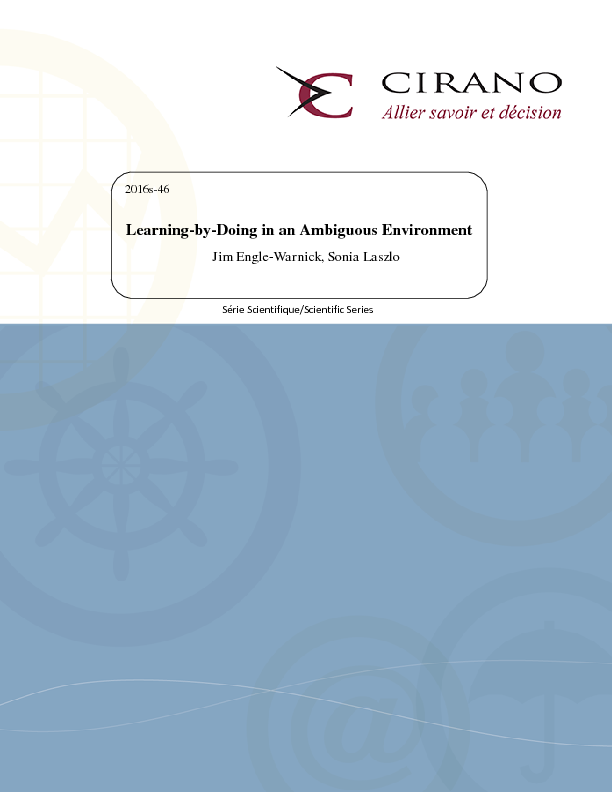Learning-by-Doing in an Ambiguous Environment
We
apply an instrument to measure ambiguity preferences in an experiment and show
that revealed ambiguity preferences, but not risk preferences, predict behavior
in a separate game that involves exploitation vs. exploration of a maximization
problem. We provide direct evidence of ambiguity preferences acting on decision
making separately from risk preferences, and advance knowledge regarding how
ambiguity preferences operate on decision-making.
[ - ]




